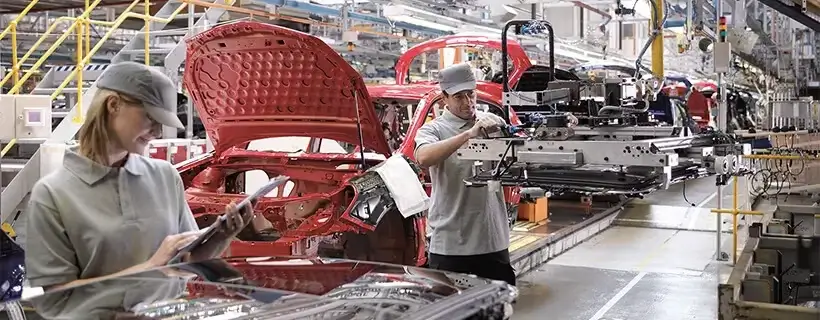Auto Electrical Jobs in Australia

What does an Auto Electrician do?
What skills does an Auto Electrician need to have?
Identify
An Auto Electrician must be able to effectively identify the requirements of requirements of the task. A combination of training, qualifications and hands-on experience should provide the Auto Electrician with the necessary industry fundamentals. This includes knowledge and understanding of electrical wiring and a variety of voltage systems (12v and 24v or higher).
Maintain
This is sometimes also referred to as the diagnosis phase. It is at this stage where an Auto Electrician displays the ability to identify electrical faults and diagnose them. In many circumstances this involves the use of instruments such as voltmeters, multimeters, and other diagnostic tools. In common motor vehicles this may relate to air conditioning, electronic fuel injection, anti-lock braking, cruise control, airbags, automatic transmission, immobiliser, alarm systems, radio, and lights. Throughout this process, Auto Electricians must be familiar with and practice all necessary safety standards.
Repair
The repair aspect of auto electrical may also include the installation of new components or systems. This is where the Auto Electrician applies their knowledge and experience to fix any electrical faults or install relevant systems. You will need to be able to install, repair or replace faulty electrical wiring and any other associated parts. In addition to installation, an Auto Electrician will be required to calibrate relevant components such as computer-controlled systems or safety equipment. As part of this process, an Auto Electrician should be able to identify if changes to one component will require upgrading others.
Install and Upgrade
Rapid technological advancement has paved the way for additional Auto Electrician roles that involve the installation or upgrading of system accessories. This includes mobile phone cradles, dash cams, navigation/GPS systems, audio equipment, Bluetooth accessories and parking sensor aids. There are also specific opportunities relating to large/off road vehicles installing flood lights and winch systems.
Auto Electrician job responsibilities
- Diagnose and repair electrical faults and computer-controlled systems used in automotive technology such as private, commercial, and industrial vehicles
- Determine if a repair, upgrade, or new installation is required and carry out the process accordingly
- Provide an accurate break down of the time and costs involved to repair the identified fault
- Calibrate and test any electrical components and wiring following installation, repair, or upgrade
- Service or replace defective electrical parts and wiring
- Order parts and equipment as required
- Install and test immobiliser, alarm systems and electrically operated accessories such as radios and air conditioners
- Install/upgrade accessories
- Test headlight strength and alignment
- Safely use hand and electrical tools
- Follow all relevant safety guidelines and procedures
Skills and experience employers are looking for
- Logical and clear thinker
- Problem solving skills
- Strong attention to detail
- Identify and diagnose electrical faults and issues with computer-controlled systems
- Competence with electrical systems and wiring
- Proficiency using tools and instruments
Core Skills
The above-mentioned is also closely related to attention to detail. Employers and customers alike consider this to be a valuable characteristic. It helps ensure that any works completed are done so to a high standard the first time around rather than requiring multiple attempts causing unnecessary delays. Employers are looking for people who can produce a high and consistent level of workmanship.
Technical Skills
Similarly, employers expect an Auto Electrician to have the skills required to install electrical systems. This includes being able to properly prepare for a task by acquiring the necessary components and tools required. An understanding circuit diagrams and specifics in relation to battery technologies is requested by most employers. Those with strong knowledge of electrical wiring including harness and computer systems are likely to be favoured.
Technological advancements have resulted in an increase in the tools and instruments used by Auto Electricians. Proficient use of hand tools such as screwdrivers and snips is expected, and the same applies to instruments such as voltmeters. There is however an increasing desire from employers to hire persons who are familiar with the use of diagnostic tools that are required to identify issues in modern automotive technology. Ability to use such instruments should be listed in your resume.
What type of employers hire an Auto Electrician?
Construction – Great opportunities for persons that have experience with heavy machinery and earth-moving equipment such as excavators, bulldozers, loaders and even cranes. Those with specific licenses to operate any such equipment should make note of it.
Logistics - many transport organisations use in-house teams to maintain and repair their motor vehicles. This may include light commercial vehicles such as vans and small trucks or larger vehicles such as semi-trailers or refrigerator trucks. Knowledge of the installation and maintenance of GPS systems would be advantageous in roles of this type.
Accessory Installation – There are a growing number of roles available which are specifically relating to the installation of accessories and upgrade of existing systems.
Other fields include agriculture, manufacturing, and marine related vessels.
Auto Electrician qualifications
Manual C class driver’s license
Certificate III in Automotive Electrical Technology
How to become an Auto Electrician in Australia
- Completion of a Certificate III (Certificate 3) in Automotive Electrical Technology
- Hands on experience is crucial. Whether it is through an apprenticeship or other form of work experience, take everything in and be willing to learn at every opportunity.
- Work on your core skills as they could be the differentiator. Employers are placing significant value on problem solving and an attention to detail.
- Expand your skill set beyond common Auto Electrician roles. This may include learning about industry-specific automotive technology. There are substantial opportunities in the mining and construction sectors.
- Obtaining licenses to drive/operate heavy vehicles and specific machinery will enhance your resume and provide additional employment opportunities.
- With technology playing a bigger part than ever before, proficiency in new instruments such as diagnostic tools could be useful.
Search for jobs
Find permanent, temporary or contract jobs with Hays.
Government and public sector roles available through Hays.
We can provide you with fast, easy access to job opportunities.

Career Advice
View templates and tips to help you start your job search journey.
Access expert advice for all stages of the job hunting process.
Master the art of job interviews with helpful articles and tips.

Tools & Resources
Simplify your job search by setting up a Hays job alert.
Find out if you're earning the salary you deserve.
Sign up to get expert career advice delivered to your inbox.

